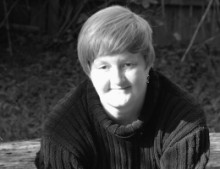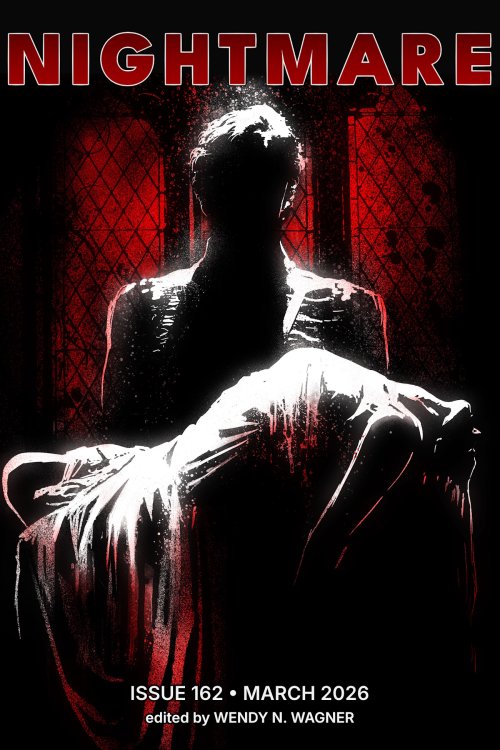“The First Year” is a layered, nuanced story of postpartum depression, motherhood, internet culture and addiction, and a parent’s fear for what will become of her child. Tell us a little about what inspired this delve into the shadows.
Social media has become such an “integral” part of our lives that it’s hard to imagine a time when people weren’t sharing everything, from an aesthetic shot of a bagel, to birth announcements, engagements, and promotions. My mother used to lug out the family photo albums on my birthday and show bare-assed baby photos of me to all my friends. I shudder to think what she might have accomplished on a more modern platform. I see these social media influencers who have hundreds of thousands of followers, and I wonder what it must be like to project this idea of yourself out to people—an image that will be loved and followed. And I, with the other followers, watch these people learn that they are becoming parents. We watch them measure their growing bellies, choose names, cradle their newborns. They want us to weigh in, in the comments, on their experience. We start to feel like we are part of their experience. But it can be easy to forget that the experiences being shared on social media are heavily edited, from the text in a post, to the images and videos. We are just watchers. We’re following. It’s pretty creepy, honestly. But we don’t get to see behind the curtain—or camera, in this case. I wanted to explore what the other side might look like, without all the filters.
Women often buckle under the weight of society’s expectations. Work hard but find time to help others relax. Be your child’s best friend but also their teacher, drill sergeant, boss, mentor, scheduler, and moral compass. Be there for your spouse but don’t forget to forge your own path. Do you have children? How familiar are you with this particular weight?
I do not have children, but I am in awe of the many strong women in my life who do.
Postpartum depression is a very real, very dangerous issue often experienced in silence. Olivia slowly suffocates under the weight of these expectations. I was particularly intrigued by her reactions to her mother’s “teeth bared in a grin” and the “invisible, gravitational pull” Liam exerts on Noah. Her support system has been kicked out from under her, or has it? Are Olivia’s experiences real or a product of her postpartum depression?
Olivia’s experiences are as real as she perceives them to be. An outsider, like Noah or Olivia’s mother, might argue that her support system is in place, that everything she could possibly need as a first-time mother has been provided for her, that her feelings are imagined, unhealthy—selfish, even. But it’s Olivia’s story. If she feels isolated, then that is her reality. The same can be said for the women suffering in silence, women who were fed expectations of happy, healthy motherhood by a society that values perfection. The pain is real. The loneliness is real. The frustration and self-loathing, the depression, the sense of loss—when a woman holds her experience up beside the glowing positivity of other mothers and feels that she is lacking, inadequate, somehow wrong for not being able to replicate the magic of motherhood—all real. And that fear of discussing feelings that fall outside of the ideal image we’ve placed on a pedestal for growing girls to aspire to, for grown women to emulate, it prevents these women from realizing that there are so many others out there who are falling short, too. Because the ideal, the high-set bar for perfection—that is unrealistic.
On your website you talk about the inspiration for your upcoming story “Skrunch,” to be released in February 2022 in Dark Cheer: Cryptids Emerging, and how difficult it was to come up with a positive spin on what could have been a more traditional horror tale. In “The First Year,” we see a similar glimmer of hope at the end of the story. As a writer and fan of horror, what would you say is the biggest challenge of writing a hopeful horror story? What is the greatest reward?
I would say the biggest challenge is defining what hope looks like for a particular story, and the characters involved, without trying to force a happy ending. Hope can be a slippery, fickle thing, open to interpretation. I would love to write every story with a light at the end of the tunnel, but I count myself lucky if I can find a silver lining. And for the characters I really love, I look long and hard. I want them to succeed, to have something to take with them after the hell I’ve put them through. That’s the greatest reward, writing them out of the darkness and somehow leaving them better for it.
If you are what you eat, writers are what they read. Who are some of your favorite authors? To whom do you turn when you want to get your fiction reading on?
Gemma Files, Stephen Graham Jones, Nathan Ballingrud, Octavia Butler, Betty Rocksteady, Kristi DeMeester, Adam-Troy Castro, Shirley Jackson, Kelly Link, Brian Evenson, Paul Tremblay, Thomas Olde Heuvelt, Joe Hill, John Ajvide Lindqvist, Peter Watts, and Stephen King. There are many more, but we would all turn to dust waiting for me to list them all.
Do you have any projects in the works? What can eager fans look forward to in 2022?
I am currently working on my first novel, which I hope to have completed this year. In May 2022, my short story, “Muscle Memory,” will be released in Dark Matter. Updates for upcoming releases and past publications can be found at rlmeza.com.









